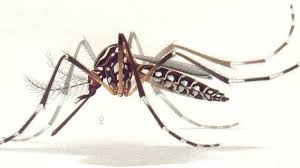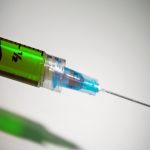It is common knowledge that malaria is a life-threatening disease caused by parasites that are transmitted to people through the bites of the infected female Anopheles mosquito. However, what we do not know is that most of the 1-3 million who die each year from malaria are children, mainly in Africa.
Every year on 25 April, people around the globe observe World Malaria Day to raise awareness and funds for the treatment and prevention of the disease. Do you know that Nigeria accounts for 25% of malaria morbidity and 19% of mortality in the world?

Here is what you should look out for
Symptoms of malaria include fever, headache, chills, sweating, vomiting, muscle pains and tiredness; these symptoms usually appear between 10 and 15 days after the mosquito bite. If not treated, malaria can quickly become life-threatening by disrupting the blood supply to vital organs.
How to prevent Malaria
The theme for World Malaria Day this year is “Zero Malaria starts with me“. We can achieve this if we make it our collective responsibility to end malaria for good. We can all reduce and prevent the transmission of Malaria. Read this article on tips and tricks on how to beat malaria to get in-depth insight.
How to treat Malaria
Use appropriate and correct dosage of anti-malarial drugs. Note that too many people start treatment with antimalarials when they do not have a diagnosis of Malaria and this is causing resistance to current anti-malaria medication. Only use drugs that a doctor prescribes after diagnosis (sometimes, it might not be malaria!).
Malaria is preventable and curable, early diagnosis and treatment are very important. If you notice any of the symptoms mentioned above, please consult your doctor.
Here are seven facts you should know about Malaria
1. Your Body Smell Could Increase Your Chances Of Infection
Ever wonder why you’re in a room and the mosquitoes seem to be going more for you than the others present? Well, that’s because certain smells attract mosquitoes. Research by the University of Emory proved that mosquitoes love the smell of beer and beer drinkers produce a smell mosquitoes find irresistible.
2. Human Beings Infect Mosquitoes And Help Spread Malaria
I bet you read that twice and asked, shouldn’t that be the other way round? Butterflies are to flowers as mosquitoes are to humans. See, the female Anopheles mosquito needs human blood to feed her eggs. If she feeds on a malaria-infected human, she has the infected blood in her and carries it on to her next victim, leaving the uninfected person with malaria. It can take weeks, months or in rare cases, years, to exhibit symptoms of malaria. Rare strains of the disease lie dormant and don’t make their carriers ill until much later. READ: [Lesser Known Facts About Malaria]
3. Fake Drugs Can Kill You Faster Than Malaria

The World Health Organisation estimates that around 20% of the one million deaths caused by malaria annually are as a result of using counterfeit drugs. No? Remember Eric Arubayi, the Nigerian singer who died some time ago and was on everybody’s social media timeline? Well, it was alleged that he died of liver failure caused by fake malaria medication.
4. There Is A Vaccine!
Hallelujah! Thanks to a recent breakthrough in medical sciences, just the way there are vaccines for measles and meningitis, there is now also a vaccine for malaria known as the RTS,S/AS01. It is the world’s first licensed malaria vaccine and also the first vaccine licensed for use against a human parasitic disease of any kind. A pilot project for this vaccination has been launched on April 23, 2019, in Malawi. Ghana and Kenya are to join the program later this year.
. READ: [Vaccines Protects Everyone]
5. There are more Than One Malaria Parasite
There are five different parasites that cause malaria. That’s right, five. Plasmodium falciparum, Plasmodium vivax, Plasmodium ovale, Plasmodium malariae and Plasmodium knowlesi, (a type of malaria that naturally infects macaques in Southeast Asia, also infects humans, causing malaria that is transmitted from animal to human – zoonotic malaria). P. falciparum is the type of malaria that is most likely to result in severe infections and if not promptly treated, may lead to death.
6. Insecticides Are Harmful
All pesticides are toxic by nature and present risks of adverse effects. Insecticides like Baygon and Raid are pesticides that you are to use on insects hence the term ‘insecticide’. As Nigerians, we tend to ‘over-fleet’ the room with tightly shut windows so that all the mosquitoes yet unconceived would die before conception. Many of us are guilty of having never read instructions on the can and the most we know is that the can says ‘highly flammable’.
Nearly all reported cases of toxicity from mosquito repellents come from using the chemicals in ways the warning labels tell you not to. At large doses, by any administration (breathing, swallowing, or touching), exposure could cause problems in different parts of the body – stomach, nervous system, heart etc, with effects like breathing problems, anxiety, dizziness, headache, coma, reduced heart rate, to mention but a few.
7. Malaria Can Cause Deafness, Blindness And Brain Damage
Severe malaria happens when the Plasmodium Falciparum is complicated by serious organ failures or abnormalities in the patient’s blood or metabolism severe malaria may occur. This could lead to Cerebral Malaria.
This is the most severe neurological complication of infection with Plasmodium falciparum malaria. It could cause deafness and blindness in children. It could also lead to abnormal behaviour, impaired consciousness, seizures, coma, or other neurologic abnormalities; i.e – Severe Anaemia due to hemolysis (destruction of the red blood cells); Hemoglobinuria (haemoglobin in the urine) due to hemolysis; Pulmonary oedema (fluid build-up in the lungs) which can happen even after severe malaria has been treated and Premature birth, restricted growth of the baby, miscarriage, stillbirth or even the mother’s death
As is the case with most illnesses, early detection is key. At the first manifestation of symptoms, please visit a doctor and get treatment.



